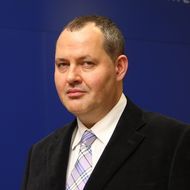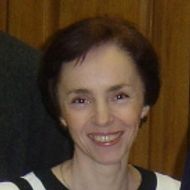В старых версиях браузеров сайт может отображаться некорректно. Для оптимальной работы с сайтом рекомендуем воспользоваться современным браузером.
✖
- A
- A
- A
- ABC
- ABC
- ABC
- А
- А
- А
- А
- А
Regular version of the site
ФКН
- HSE University
- Faculties
- Faculty of Economic Sciences
- Frequently asked questions about project work
-
Departments
- Departments
-
Institutes and Centres
-
- Institute of Economics and Utility Regulation
- Institute for Industrial and Market Studies
- Centre for Labour Market Studies
- International Centre of Decision Choice and Analysis
- Centre of Development Institute
- Centre for Financial Research & Data Analytics
- Economic Statistics Centre of Excellence
- Anti-Corruption Centre
-
-
Laboratories
-
- International Laboratory for Macroeconomic Analysis
- International Laboratory of Stochastic Analysis and its Applications
- International Laboratory for Experimental and Behavioural Economics
- Corporate Finance Center
- Laboratory for Banking Studies
- Laboratory for Labour Market Studies
- Laboratory for Sport Studies
- Laboratory for Wealth Measurement
- Project Laboratory for Development of Intellectual Competitions in Economics
- Laboratory for Spatial Econometric Modeling of Socio-Economic Processes in Russia
-
- Department of Financial Market Infrastructure
- ICEF
-
Educational Programmes
- Bachelor's Programmes
-
Master's Programmes
-
- Economics and Economic Policy
- Agrarian Economics
- Stochastic Modeling in Economics and Finance (Previously, Master's in Statistical Modelling and Actuarial Science)
- Statistical Analysis in Economics
- Economic Analysis (Online)
- Strategic Corporate Finance
- Financial Markets and Institutions
- Corporate Finance
- Financial Engineering
- Master of Business Analytics (Online)
- Investments in Financial Markets (Online)
-
- Doctoral Programmes
-
Faculty
109028, Moscow,
11 Pokrovsky Boulevard,
Room Т-614
Phone: (495) 628-83-68
email: fes@hse.ru
Administration
Dean
–
Sergey E. Pekarski
First Deputy Dean
–
Sergey Merzlyakov
Deputy Dean for Academic Work
–
Elena Pokatovich
Deputy Dean for Research
–
Dmitry A. Veselov
Deputy Dean for International Affairs
–
Liudmila S. Zasimova
Deputy Dean for Undergraduate Studies
–
Elena Burmistrova
Frequently asked questions about project work
What is a Project?
- A Project is a group of people (the supervisor, co-supervisors, and students of different years of study) who work on the same subject and/or on one task. Within the framework of the project, students write course papers and diplomas. The discussion of their progress as well as a bit of learning happens at the research project seminars (RPSs), where the whole group meets. There are two types of projects – academic and practice-oriented ones.
- We interpret the “Project” term quite widely and not necessarily the way this concept is understood in business. The new model of project work at the FES is designed to create conditions that allow students to choose their preferred learning track. On the one hand, we involve potential employers (external to the university and research departments of the HSE) in the implementation of the project work. Tasks that are set in such projects are not theoretical, but real (both purely scientific and practical). On the other hand, we continue developing the familiar approach of communication between students and professors. Many professors who are engaged in a specific scientific topic (or develop the usage of certain instrumental methods) have always supervised course papers and diploma papers among students of different years. We move on to a model, in which professors and their students are combined into a “project” and have their own research project seminars. Collaboration between students and post-graduate students, as well as between professors (researchers) with a similar subject is welcomed.
- The new model of the project work is also intended to ensure the development of a project-based learning (PBL) approach at the FES. Students are assumed to choose certain electives if they want to participate in specific projects this year or to continue to participate in them in the future. This is an important aspect of goal setting in the learning process.
For students of which educational programs of the FES is participation in projects mandatory?
- From 2020-2021 academic year, participation in the project work is mandatory for the 2nd-4th year bachelor students and 1st-2nd year master students of the following educational programs of the FES:
Master's degrees: “Agrarian Economics”, “Applied Economics”, “Statistical Analysis in Economics”, “Statistical Modelling and Actuarial Science”, “Strategic Corporate Finance”, “Financial Markets and Institutions”, “Economics: Research Programme”.
- Moreover, the 1st year bachelor students may participate in a project by the agreement of a supervisor.
Who can be the project supervisor / co-supervisor from HSE?
- Any researcher or faculty member. In addition to the FES professors, the staff of scientific departments, researchers or professors from other faculties, as well as PhD students, are welcomed to participate in the projects as (co-)supervisors.
- Note that projects are indicated in the workload without compulsory classroom work, project hours are reallocated to extracurricular work.
Who are the external co-supervisors? What are they needed for?
- External co-supervisors are co-supervisors who are not the HSE employees. It is assumed (and highly encouraged) that some of the projects will have co-supervisors from among potential employers. Thus, students will have an opportunity to get acquainted with the features of the business processes of various companies and try their hand at solving real business problems.
How many supervisors and co-supervisors can a project have?
- A project has a single supervisor. He is the contact person for the project. There may be several co-supervisors, both internal, from the HSE, and external. The number of co-supervisor must be not more than 5.
Is it possible to supervise a course paper/ diploma paper and conduct a project seminar? What else can a supervisor do?
- Yes, you can do both. Yes, other, additional, types of activity are permissible and remain at the discretion of supervisors / co-supervisors. However, it is necessary to describe them in the form when submitting the project to the project database.
Can a project have only a supervisor?
- Yes, co-supervisors are not mandatory.
Can I be a supervisor / co-supervisor in several projects?
- Yes, you can.
The project supervisor wants to create a project in Russian but is ready to “switch” to English or to consider an option in two languages. How to fill out the form in this case?
- For such projects, you need to fill out a form in English (let’s give non-Russian speaking students a chance to find your project!) and indicate “Russian or English upon demand” as the language of the project.
How many students can enter a project?
- There is no lower limit on the number of students per project. However, in case the number of students per one co-supervisor exceeds 10, additional explanations from the RPS supervisor will be required.
- The maximum number of students should be such that the project seminar in which everyone participates remains effective (which is rather difficult if there are more than 25-30 students).
Is it obligatory to include students of all possible years of study in the project?
- No, although this is highly desirable. We recommend offering projects for students of at least several years of study. It is important to include undergraduate students. The argument "they do not know anything yet" can be accepted only in limited cases. Firstly, one of the objectives of the project work is to create new competencies for students and to interest them in choosing specific electives. A junior student may lack some knowledge. But by participating in a discussion at a research project seminar along with senior fellows, the student is improving his skills and knowledge. Secondly, the project supervisor has the right to apply different requirements to students of different courses.
What is included in the student's application for participation in a project?
- In the application, the student must indicate the name, year of study, and up to 5 projects in which he would like to participate. Projects need to be ranked from 1 - the most preferred - to 5 - the least preferred of the selected. In addition, for each project, a student writes a short motivation letter, in which the student needs to tell why the applicant wants to get into the project. Students apply for participation through the FES Project System.
- If the supervisor and co-supervisors of the project will be given a choice of several student applications, they can guide their choice by the content of the motivation letter, as well as any information available to them about the student (ratings, portfolio in LMS, etc.). Note that along with an application a supervisor sees GPA and a list of previously completed courses.
Can supervisors arrange student interviews before being selected for the project? Or ask for additional information?
- Theoretically, yes. In the Additional Comments section, you can indicate that students can send certain additional materials or communicate their readiness for an interview. We post a list of projects on the project work page before the start of the period for accepting applications for participation in projects from students. Therefore, students have a short period of time when they can contact the project supervisor and provide additional information to themselves to make the choice more reasonable. Remember, however, that in many cases the decision to include a student in a project is made automatically.
What will happen to projects that students have not chosen?
- If all students are distributed by other projects, then such projects will not be open.
- In the schedule of students, there will be uniform “windows” for all – slots in the timetable, when no study group has classes. Supervisors can plan their projects for these “windows”.
What to do if practice-oriented project tasks from employers do not coincide with the terms of the project?
- The term of any project is one academic year. If solving the tasks of the employer involves a shorter time, the project supervisor and co-supervisors should consider the types of activity for the remaining time (for example, tasks related to preparing for solving the tasks of the employer, discussing the results of work after solving these problems, etc.). If the tasks of the employer are long-term, it is necessary to divide their solution into stages of 1 academic year and plan the project work for several years at once. A significant part of the projects can "flow" from one year to another without changing the name or changing it slightly. In this sense, projects can be long-term.
Does a student need to fill out both forms - in Russian and in English?
- No, the form in English is only for foreign students who cannot fill out the form in Russian due to the fact that they do not know the Russian language. All other students just need to fill out an application in Russian. Duplicated applications will be deleted, and only the application in Russian will be left. If among the projects for which the student submits an application, there is a project(s) in English, the student can write motivation letters in English in the corresponding fields of the form in Russian.
- No, project co-supervisors can also be research supervisors, including external ones. Whether the supervisor or co-supervisor is ready to take on the reserach supervision of course papers or diploma papers is indicated in the project form for each supervisor and co-supervisor.
- Supervisors indicate courses so that students can understand without which courses participation in the project will be extremely difficult, so yes, these courses are worth choosing. However, in some projects, supervisors write which courses it is desirable to choose or indicate only the subject that the student should pay attention to. Each supervisor is expected to independently determine the stringency of the requirements for each course.
What should a student do who, based on the selection results, did not qualify for any project?
- These students will be automatically distributed between the projects.
What should a student do if he/she wishes to change the project and to become a part of another project team?
- If a student wants to change a project, he/she needs to go to the FES Project system, choose "All projects", select the project he/she likes, click on its name and submit a transfer request through the special box. When both supervisors (current and future) accept student's requst, the project will be changed.
What should a student who did not get into any project (for any reason) do now?
- The student should look carefully through the list of projects, select projects where there are empty seats for students of his / her year of study, and directly contact the supervisor of this project, expressing the desire to join the project team. If the supervisor agrees to accept the student to the project, he/she will inform the student and the project office, and the student will be formally enrolled in the project.
We will add new questions and answers to them on this page, stay tuned!
- About
- About
- Key Figures & Facts
- Sustainability at HSE University
- Faculties & Departments
- International Partnerships
- Faculty & Staff
- HSE Buildings
- Public Enquiries
- Studies
- Admissions
- Programme Catalogue
- Undergraduate
- Graduate
- Exchange Programmes
- Summer University
- Summer Schools
- Semester in Moscow
- Business Internship
-
https://elearning.hse.ru/en/mooc/
Massive Open Online Courses
-
https://www.hse.ru/en/visual/
HSE Site for the Visually Impaired
-
http://5top100.com/
Russian Academic Excellence Project 5-100
- © HSE University 1993–2024 Contacts Copyright Privacy Policy Site Map
- Edit





